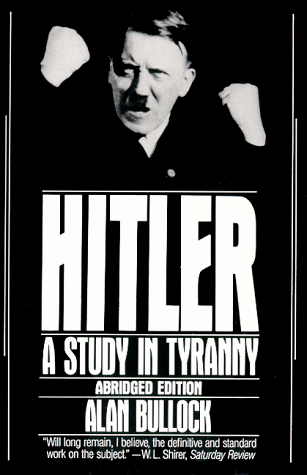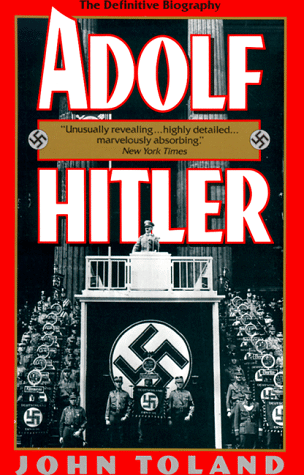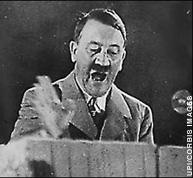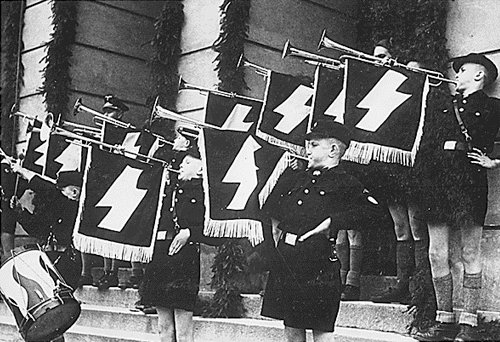

Adolf Hitler's book, Mein Kampf, is German for My
Battle. In his book he says that he started his movement on February 24, 1920. On this
day Rev. Moon was born. This is not a coincidence. Hitler is the satanic image of Jesus.
Hitler killed 6,000,000 Jews in his hatred of religious people.
He wrote, "February 24, 1920, was the date fixed upon for the first great mass meeting of the movement which was still unknown. I made the arrangements in person."
"The colour we chose was red, s providing the best draw and being the one most likely to excite and irritate our opponents, and therefore to impress us most firmly on their minds and memories."
"The meeting started at seven-thirty. At seven-fifteen I walked through the hall at Hofbrauhaus in the Platzl in Munich, and my heart nearly burst with joy. That great hall -- for it seemed great to me then -- was close-packed and overflowing with an audience of nearly two thousand."
"When the first speaker had finished, it was my turn to speak. In a few minutes interruptions hailed on me, and there were violent scenes in the body of the hall; a handful of faithful War-comrades and a few other adherents engaged the disturbers and managed to restore quiet after a bit. I was able to proceed. Half an hour later the applause began to drown the interruptions and hooting, and finally, when I had explained the twenty-five points, I had before me a hall full of people, united in a new conviction, a new faith, a new will. A fire had been kindled from the glow of which the sword was to emerge destined to restore freedom to the Germanic Siegfried and life to the German nation."
In  the book, Hitler and Stalin, Alan Bullock
writes, "Stalin and Hitler were materialists not only in their dismissal of religion
but also in their insensitivity to humanity as well. the only human beings who existed for
them were themselves. The rest of the human
the book, Hitler and Stalin, Alan Bullock
writes, "Stalin and Hitler were materialists not only in their dismissal of religion
but also in their insensitivity to humanity as well. the only human beings who existed for
them were themselves. The rest of the human  race
was seen either as instruments with which to accomplish their purposes or as obstacles to
be eliminated. They regarded life solely in terms of politics and power: Everything else
-- human relationships and emotions, knowledge, beliefs, the arts, history, science -- was
of value only insofar as it could be exploited for political purposes."
race
was seen either as instruments with which to accomplish their purposes or as obstacles to
be eliminated. They regarded life solely in terms of politics and power: Everything else
-- human relationships and emotions, knowledge, beliefs, the arts, history, science -- was
of value only insofar as it could be exploited for political purposes."
"Both men were remarkable only for the roles they assumed. Outside of those, their private lives were insignificant and impoverished. And each of the roles was consecrated to a vision of a world that, however great the differences between them, was equally inhuman -- a world in which whole populations could be uprooted and moved about; whole classes could be eliminated, races enslaved or exterminated; millions of lives sacrificed in war and even in time of peace; individual men and women dwarfed by the scale of the monolithic structures -- state, Volk, party, army, giant industrial complexes, collective farms, labor and concentration camps -- into which they were organized."
The Divine Principle says that totalitarianism is wrong. Hitler writes how people must be absolutely strong. He has phrases like, "the individual who backs it with his life and all he has." He says that he hates, "incompetents and weaklings."
A distinguished group of Americans printed Mein Kampf in 1940 and put commentary below each page so as to warn America and the world against this evil man. For example, they write on one page, "In Nazi usage the word Fuhrer (leader) has a very special connotation, difficult for an outsider to understand. The Fuhrer is a man who gives expression to the divinity that is enshrined in his people." A follower of Hitler "once described the Fuhrer as follows: 'He must have a somnambulistic feeling of certainty. ... In the pursuit of his goal, he must not shrink from bloodshed or war even.' For many, perhaps for himself, Hitler is the German Messiah, whose kingdom is to last thousands of years, even as has that of Christ. Hitler, too, began with a small number of disciples -- the first group was of the mystic number seven -- one or the other of whom proved unfaithful."
In another page of commentary they wrote, "Hitler is the Messiah, whose faith is that which alone can save the world, in so far as the German people are concerned. Wilhelm Kube and Robert Ley, both prominent officials, have likened him to Christ."
Hitler clearly wrote of blood and terror. He proved that it is possible for evil to publicly proclaim its diabolical goal and have masses of people the world over not only not believe it but even try to look for the good.
The book is a Satanic Bible. It is based on racial hatred and love of violence. Hitler wrote that God had given him the commission to eradicate the Jew and raise up a new race of men, "Hence today I believe that I am acting in accordance with the will of the Almighty Creator by defending against the Jew; I am fighting for the Lord." Of course, the Lord is Satan who rules this earth.
Hitler had total confidence in himself. He is a Satanic Christ.
Hitler was an obscure figure -- empty life -- Eva Brown attempted suicide twice because she felt hurt and neglected. Her predecessor, Geli Raubol, actually did commit suicide probably for the same reasons.
He had no friends. He had little education.
February 24, 1920 he made his first speech at a mass rally and was a success.
He said he received a supernatural vision which ordered him to save Germany. He was at that time, 30 years old. The same age that of another messiah is said to have begun his mission. For this obscure corporeal had made a choice which would affect the lives of countless millions.
He was extremely poor. No job. No money. No friends.
In 1920, he was 30 years old. He gave his first public speech. It was emotional, hate filled, explosion. His words had magic power to create hate. He promised, like Lucifer, greatness. Germany would return to greatness.
He said, "Do you not understand now the profound meaning of our National -- Socialist movement? Whoever sees in National Socialism nothing but a political movement doesn't know much about it. ... It is even more than a religion: it is the will to create mankind anew."
Neville Chamberlain was weak and naive.
In Mein Kampf he wrote, "We are confronted by the endless army, not so much of the deliberately bad as of the mentally lazy and indifferent, including those with a stake in the preservation of the present condition. but precisely in this apparent hopelessness of our gigantic struggle lies the greatness of our task and also the possibility of our success. The battle-cry which either scares away the small spirits at the very start, or soon makes them despair, will be the signal for the assemblage of real fighting natures. And this we must see clearly: If in a people a certain amount of the highest energy and active force seems concentrated upon one goal and hence is definitively removed from the inertia of the broad masses, this small percentage has risen to be master over the entire number. World history is made by minorities when this minority of number embodies the majority of will and determination."
"What, therefore, may appear as a difficulty today is in reality the premise for our victory. Precisely in the greatness and the difficulties of our task lies the probability that only the best fighters will step forward to struggle for it. And in this selection lies the guaranty of success."
Evil is a mirror of the good. Hitler unties he says the education of the youth must emphasize values over science. And these values are Hellinism, a man centered philosophy. God's way of educating the youth would be to emphasize the Hebraic ideal. And like God, Satan calls for joyful sacrifice to build an ideal. He loves the Roman Empire. He writes of a millennium.
He often used religious language and symbols. The "inseparable Trinity" of State, Movement, and Volk; the "Thousand Year Reich"; The symbol of his movement being a kind of twisted cross.
In Mein Kampf, "In is the characteristic of our present materialized epoch that our scientific education is turning more and more toward practical subject -- in other words, mathematics, physics, chemistry, etc. Necessary as this is for a period in which technology and chemistry rule -- embodying at least those of its characteristics which are most visible in daily life -- it is equally dangerous when the general education of a nation is more and more exclusively directed toward them. This education on the contrary must always be ideal. It must be more in keeping with the humanistic subjects and offer only the foundations for a subsequent additional education in a special field. Otherwise we renounce the forces which are still more important for the preservation of the nation than all technical or other ability. Especially in historical instruction we must not be deterred from the study of antiquity. Roman history correctly conceived in extremely broad outlines is and remains the best mentor, not only for today, but probably for all time. The Hellenic ideal of culture should also remain preserved for us in its exemplary beauty. We must not allow the greater racial community to be torn asunder by the differences of the individual peoples. The struggle that rages today is for very great aims. A culture combining millenniums and embracing Hellenism and Germanism is fighting for its existence."
"A sharp difference should exist between general education and specialized knowledge. As particularly today the latter threatens more and more to sink into the service of pure Mammon, general education, at least in its more ideal attitude, must be retained as a counterweight. Here, too, we must incessantly inculcate the principle that industry, technology, and commerce can thrive only as long as an idealistic national community offers the necessary preconditions. And these do not lie in material egoism, but in a spirit of sacrifice and joyful renunciation."
John  Toland in his book, Adolf
Hitler, writes, "He had often told his friends he could not undertake 'the
responsibility of marriage.' Perhaps he had also feared that it might diminish his
uniqueness as Fuhrer; to most Germans he was almost a Christlike figure, But now all that
was over and the bourgeois side of his nature impelled him to reward his faithful mistress
with the sanctity of matrimony."
Toland in his book, Adolf
Hitler, writes, "He had often told his friends he could not undertake 'the
responsibility of marriage.' Perhaps he had also feared that it might diminish his
uniqueness as Fuhrer; to most Germans he was almost a Christlike figure, But now all that
was over and the bourgeois side of his nature impelled him to reward his faithful mistress
with the sanctity of matrimony."
"There were eight guests: Bormann, the Goebbelses, Gerda Christian, Chief Adjutant Burgdorf, Krebs, Arthur Axmann, head of the Hitler Youth, and Fraulein Manzialy, the cook. A minor official was found in a nearby Volkssturm unit and brought into the bunker to officiate -- appropriately, his name was Wagner. Eva wore a long gown of black silk Ludwig Stumpfegger -- who proposed one phial be tested on Blondi. Hitler agreed, then, recalling that Stumpfegger himself belonged to the SS, sent for a doctor in the hospital bunker. This man dutifully forced the liquid down the throat of the dog Hitler adored. It killed her."
Early that evening word arrived that Mussolini and his mistress had been assassinated by Italian partisans, their bodies strung up by the feet in a Milan gas station. 'I will not fall into the hands of the enemy dead or alive!' said Hitler. 'After I die, my body shall be burned and so remain undiscovered forever!'"
Hitler was impotent. He had no family. Jesus' body was never found. Eva Brown was 17 years old when he was 40.
years old when he was 40.
I think this is from Toland's book page 350 Chapter titled, "The Easy Conquests." He writes, "He was a master of lying, an art he cultivated with extraordinary effectiveness, so that there must have been times when he believed his won lies and was in danger of falling into his won baited traps."
Harper's magazine had an article in April 1941 by a Henry C. Wolfe titled "Keep An Eye On Russia." This article is very perceptive. God was speaking through this author to warn America and to educate Americans of the evil of Stalin. But America was so naive and blinded by Satan.
He writes, "Every day the American press prints news about the parts that Britain, Germany, and Japan are playing in the international crisis. The average American reader is justified, therefore, in assuming that his country's main role in the war is limited to relations with those three powers. The United States, it would appear, is faced with the dual problem of holding down the Japanese and helping the British beat Germany. Once the Japanese and Germans are disposed of, the United States and Britain will be able to rearrange the world according to their common idea of right and justice."
"Except when special situations have arisen, there has been comparatively little in the news about Russia. To be sure, the Soviet Union has stayed out of the war, but that does not mean that the Red dictatorship of Joseph Stalin is not one of the most vital factors in today's world crisis. Moscow has gone to great lengths to maintain her non-belligerent status in order that she may capitalize on the war. The state of breakdown and destruction that must follow the conflict is the prize for which the Kremlinites are waiting. Who wins or loses the war matters little to the Soviets if it is a long, exhausting war. The U.S.S.R. counts on being the ultimate victor in the struggle."
"The attitude of some of the American press toward the Soviet Union is of a piece with the capacity of the American public for wishful-thinking. In no other field has the American public let its wishful-thinking run so wild as in its concept of Bolshevist Russia. At times it has been so emotional as to approximate the fantastic. Rarely has it been logical; seldom has it been been enlightened. Small wonder then that Americans were shocked by the Hitler-Stalin deal. But unless we forgo wishful-thinking in our relations with the Soviet Union we run the risk of being shocked again, and perhaps again. Indeed, a realistic attitude to the Soviet question should be made part of our national defense."
"During the years between the Amistice and the Nazi-Soviet pact there grew up in this country and extraordinary myth about the Soviet Union. There were reasons. The overthrow of the Tzar appealed to the democratic tradition; the American Communist Party was naturally committed from the start; the liberals were fascinated; numbers of business men were interested in the Russian-American Chamber of Commerce and the possibilities of Russian trade; the Book-of-the-Month Club distributed New Russia's Primer. In general, the Five-Year Plan aroused widespread curiosity , if nothing more, Finally, with the rise of Hitler, the formation of the Popular Front lent color to the argument that Russia was the defender of peace. Taken altogether, the effect of all these attitudes in the United States was powerful, despite the strong anti-Communist sentiment among conservatives. The observer who forecast an eventual deal between Bolshevism and Nazism was a "disguised Fascist" who was attempting to so 'sow dissension among the peace loving democracies.'"
"The  Hitler-Stalin pact
accomplished at least one constructive result in the United States. It rudely awakened
many people from their dream of Soviet dedication to peace and democracy. But not for
long. Scarcely three weeks later, when the Red army attacked the doomed Poles, the old
shibboleths about democratic, peaceful Russia began to reappear. Stalin had invaded Poland
to stop the Nazis. Many Americans expected the Red Tzar to lose no time in stabbing the
Nazi Fuhrer in the back. In the British Parliament Sir Archibald Sinclair thought the
Soviet actions must be 'rather ominous' for the Germans. And Mr. Boothbay, a Conservative
member, revealed his optimism: 'I hope and believe that one day we shall get the support
of Soviet Russia.' Later came the Russian attack on Finland. Public opinion in America and
Britain recoiled before this bald act of aggression. But after the epic Finnish resistance
was broken Moscow once more found champions in the Western democracies."
Hitler-Stalin pact
accomplished at least one constructive result in the United States. It rudely awakened
many people from their dream of Soviet dedication to peace and democracy. But not for
long. Scarcely three weeks later, when the Red army attacked the doomed Poles, the old
shibboleths about democratic, peaceful Russia began to reappear. Stalin had invaded Poland
to stop the Nazis. Many Americans expected the Red Tzar to lose no time in stabbing the
Nazi Fuhrer in the back. In the British Parliament Sir Archibald Sinclair thought the
Soviet actions must be 'rather ominous' for the Germans. And Mr. Boothbay, a Conservative
member, revealed his optimism: 'I hope and believe that one day we shall get the support
of Soviet Russia.' Later came the Russian attack on Finland. Public opinion in America and
Britain recoiled before this bald act of aggression. But after the epic Finnish resistance
was broken Moscow once more found champions in the Western democracies."
"In the first place, relations between the Nazis and Soviets are not based on friendship. It is the relationship of gangsters plotting robberies and the division of loot. The gangsters do not trust each other; their guns are loaded. Still the partners know that there will be more plunder to divide if they work together just as long as it is mutually profitable. How long will it be to the advantage of the Nazi and Soviet partners to continue their program of collaboration and mutual non-aggression?"
...
"Laying all emotion aside, we should recognize Stalin for what he is -- a master practitioner of Realpolitik, a political realist who combines the craft and subtlety of Oriental diplomacy and the cynical ruthlessness of a Machiavelli. His goal is dynamic world revolution; ours is world peace and stability founded on international justice. The two programs can have nothing in common. If we would avoid disastrous mistakes we must recognize the ugly fact that Berlin and Moscow follow the methods of gangland. The double-cross is a basic move in their strategy. To repeat: as long as it is mutually profitable to them the two dictatorships will stand together against their common enemies, the Western democracies."
